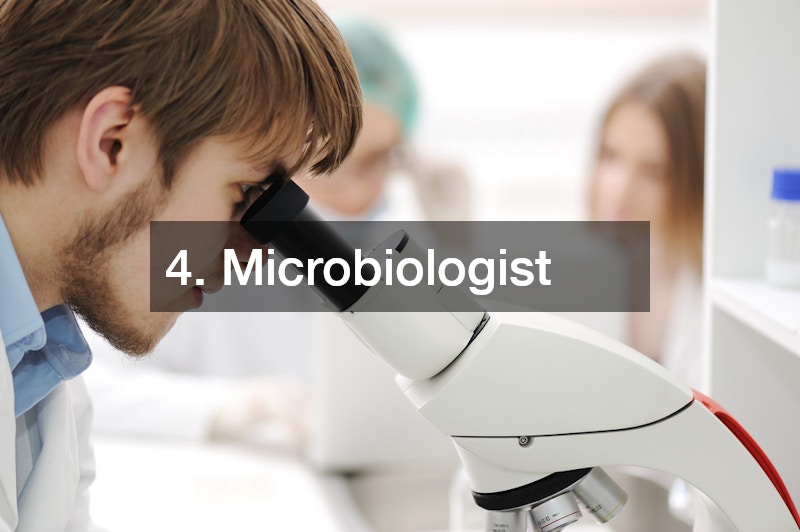Disclaimer: Art In The News. This site provides arts and entertainment content for informational purposes only.
A biology degree can unlock a wide range of fulfilling and dynamic careers beyond the traditional image of a lab coat and microscope. Whether you’re freshly graduated or looking to pivot into a new role, biology offers a strong foundation in scientific thinking, research, and problem-solving skills that are highly valued across various industries. From healthcare and environmental conservation to biotechnology and education, the possibilities are more diverse than many expect.
In this article, we’ll explore 20 exciting career paths you can pursue with a biology degree. Whether you’re passionate about working with patients, studying ecosystems, or launching a career in science communication, there’s a biology-based profession to match your interests.
1. Medical Laboratory Technician
Medical lab techs analyze blood, tissues, and fluids to help doctors diagnose diseases. It’s ideal if you love lab work and want to support healthcare teams behind the scenes.
2. Genetic Counselor
With some additional training, biology graduates can become genetic counselors, helping patients understand inherited conditions and potential risks.
3. Biotechnologist
Biotechnologists use biology to develop new products in medicine, agriculture, and industry. You’ll likely work in a lab developing treatments, crops, or sustainable materials.
4. Microbiologist
Microbiologists study microorganisms such as bacteria and viruses. Many work in public health or food safety sectors to track diseases or ensure safe food production.
What Careers Can You Get With a Biology Degree in Healthcare?
Biology degrees are a solid foundation for entering the healthcare sector. While some roles may require advanced degrees or certifications, many start at the bachelor’s level.
Popular healthcare-related careers:
- Physician Assistant (PA): Requires a master’s degree, but a biology background is the first step.
- Pharmaceutical Sales Representative: Use your science knowledge to inform and persuade healthcare professionals about new treatments.
- Clinical Research Coordinator: Manage trials and studies that test new drugs or therapies.
- Health Educator: Work in community outreach to promote healthy habits and disease prevention.
Related tip: If you’re also researching what careers can you get with a health science degree, many options overlap—especially in public health and clinical settings.
5. Environmental Consultant
Help companies and governments reduce their environmental impact by conducting research and making eco-friendly recommendations.
6. Ecologist
Ecologists study ecosystems and wildlife interactions. You could work in the field collecting data or in offices modeling the impact of human activity on nature.
7. Marine Biologist
Study ocean life and ecosystems. While competition is high, roles exist in research institutions, government agencies, and conservation NGOs.
8. Wildlife Biologist
These professionals manage conservation efforts and monitor animal populations, often working with government or environmental organizations.
9. Forensic Scientist
Combine biology and criminal justice to analyze biological samples at crime scenes. A rewarding choice if you enjoy detailed lab work and solving puzzles.
10. Toxicologist
Toxicologists determine the impact of chemicals and other substances on living organisms. Many work in pharmaceutical companies, the government, or environmental safety.
11. Science Writer or Communicator
Love explaining complex ideas in simple terms? Use your biology background to write for magazines, health blogs, or educational publishers.
12. Medical Illustrator
Combine biology knowledge with artistic skills to create visual content for medical textbooks, journals, and educational materials.
13. Biomedical Engineer
Working at the intersection of biology and engineering, biomedical engineers develop medical devices, imaging equipment, and artificial organs.
14. Bioinformatics Specialist
Analyze complex biological data using computer science and statistics. Great for analytical thinkers interested in genomics or personalized medicine.
15. Pharmaceutical Scientist
Research and develop new medications. Most roles are in the private sector, with opportunities in research labs and pharmaceutical companies.
What Careers Can You Get With a Biology Degree Outside of the Lab?
Not everyone with a biology degree wants to spend their days in a lab or field site. There are plenty of career paths that blend science with business, education, or even law.
Non-traditional paths include:
- Patent Examiner or Intellectual Property Specialist: Assess scientific inventions for patents.
- Science Policy Analyst: Advise lawmakers or advocacy groups on science-based issues.
- High School Biology Teacher: Inspire the next generation with your passion for science.
- Healthcare Administrator: Combine your biology background with business knowledge to manage medical practices or hospitals.
Final Thoughts: Choosing the Right Biology Career Path
With a biology degree in hand, you’re well-equipped to enter a variety of fields where analytical thinking, scientific literacy, and problem-solving are valued. Your career path will depend on your passions—whether they lie in patient care, research, education, or advocacy. Don’t hesitate to pursue internships, certifications, or graduate degrees to strengthen your expertise and open new doors.
Pro Tip: Think about what environments excite you—lab, classroom, field, or corporate office—and use that as a guide when exploring your options.

